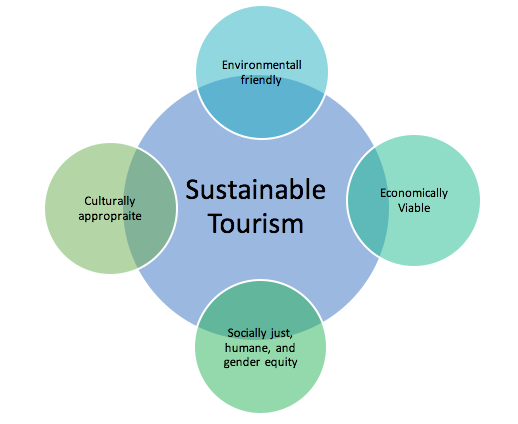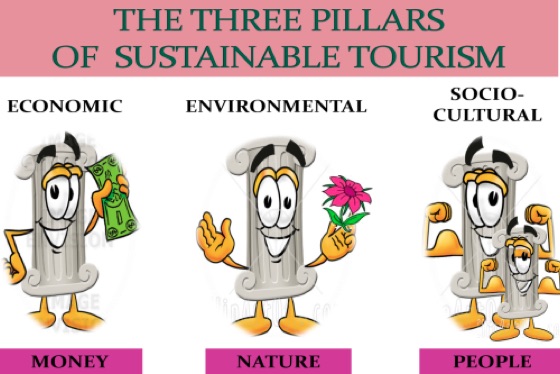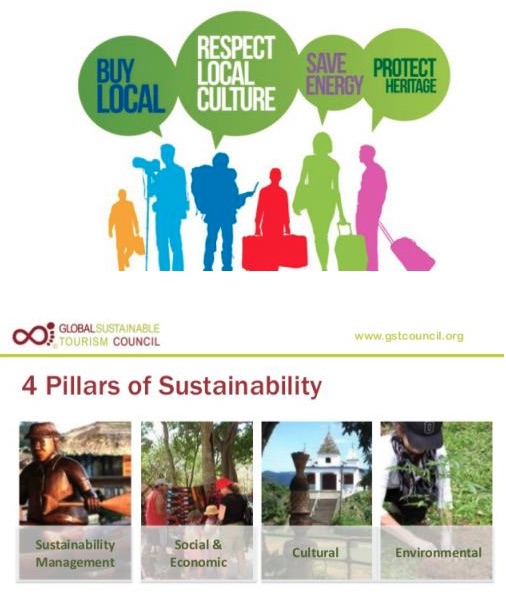Sustainable Tourism
Understanding what is sustainable tourism.
Since BSTS aims to promote sustainable tourism development one needs to understand what we mean by sustainable tourism. The information provided below will help you get a basic understanding. More detailed information can be accessed through the net by googling ‘sustainable tourism’.
The word sustainability in development paradigm emerged in the 1980s when it became apparent that major global environmental changes were occurring. Governments and agencies became concerned to reduce carbon footprints in the process sustainability was considered a priority in many development programs. While tourism offers immense benefits it is also a source of increasing stress on the biological and cultural resources. The temptations of reaping quick benefits are becoming more evident. As such advocating sustainability in tourism has gained huge support and momentum. Sustainable tourism needs to be pursued to prevent short term benefits becoming an impediment to harvesting long term opportunities. The aim of sustainable tourism development is to meet the needs of the present tourists and host regions while protecting and enhancing opportunities for the future.
The World Tourism Organization defines sustainable tourism as “tourism which leads to management of all resources in such a way that economic, social and aesthetic needs can be filled while maintaining cultural integrity, essentials ecological processes, biological diversity and life support systems.”
Sustainable tourism development is committed to making low impact on the environment and local culture, while helping to generate employment for the host local residents. Its development must ensure positive experience for the host local people, visitors, and travel companies.
The key pillars of sustainable tourism are economic, environmental and socio-cultural. This means sustainability must be met in all these areas for tourism to be considered sustainable. As sustainability in tourism was being propagated through its principles it influenced the emergence of many types of tourism like – ecotourism, nature tourism, responsible tourism, green tourism, agrotourism, rural tourism, etc.

Though the global movement in recognizing sustainability emerged only sometimes in the 1980s Bhutan was ahead in its vision by adopting sustainable tourism principles right from the inception of tourism development in the country from 1974. While this is a notable achievement the bigger challenge lies in developing and implementing strategies on the ground that match the vision policies.


You tube link to understand sustainable tourism